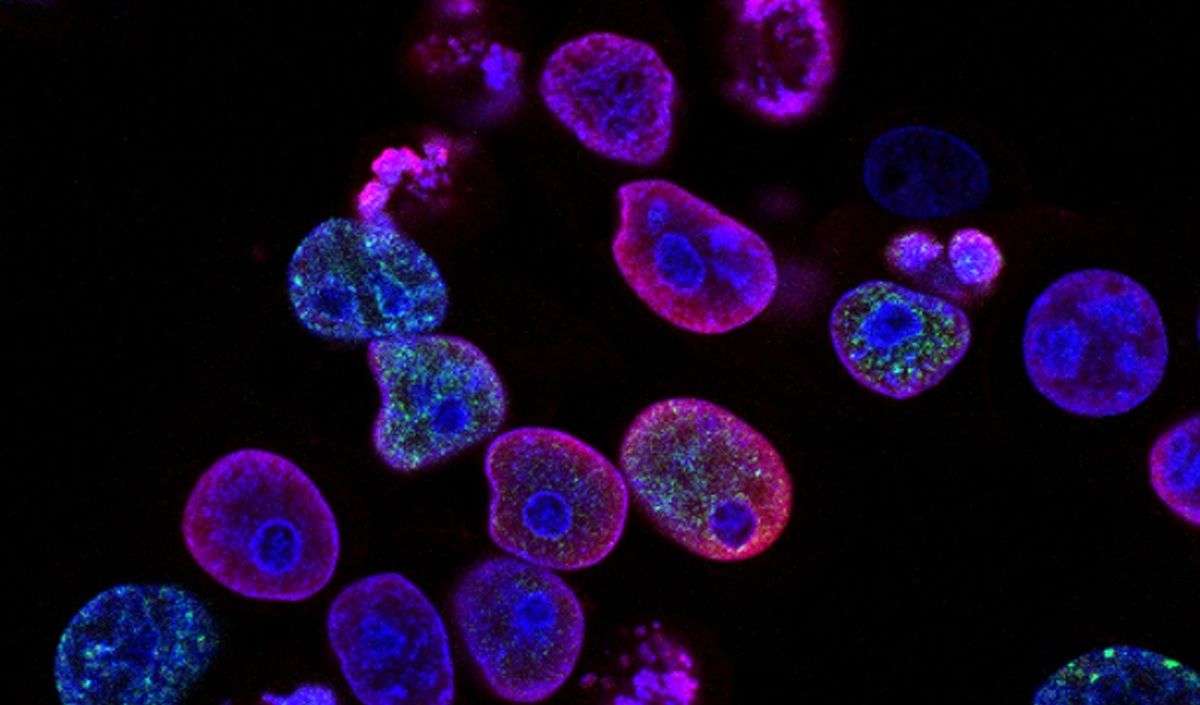Energy Psychology Offers Help for the Emotional Effects of Cancer: The Research
What we know so far about energy psychology and cancer
A cancer diagnosis causes tremendous emotional upheaval for many people who have received a diagnosis. Energy psychology tools may be uniquely positioned to help. Here is a brief review of the research on energy psychology and cancer from around the world. These tools can offer relief for the emotional effects of cancer.

For a brief overview of some of the theory, go here.
EFT improves physiological markers of health
Bach et al published a study in the Journal of Evidence-Based Integrative Medicine in 2019, examining the psychological and physiological outcomes for people (n=203) who attended a four-day EFT workshop. Participants experienced reductions in anxiety, depression, PTSD, pain, and cravings, and an increase in happiness. Several physiological markers were taken of some study participants (n=31). These demonstrated a significant increase in Immunoglobin A (SigA), an antibody that plays a role in immune function, and decreases in resting heart rate, cortisol, and blood pressure.
EFT for chemo brain
Laura Track et al conducted a randomized, controlled study of EFT for cancer-related cognitive impairment (CRCI; aka “chemo brain”). The study was published by EClinicalNews in August of 2021. Participants were 121 patients in Belgium and the UK who met diagnostic criteria for cognitive impairment. The study lasted 16 weeks. For the first eight weeks, half the participants received instruction in EFT tapping and tapped with a clinician and at home, while the other half waited. They all took a second cognitive test and other assessments. Then, the second group got EFT training. The difference between groups at eight weeks was significant, with the tapping group achieving a reduction in cognitive impairment. The second group “caught up” at 16-weeks, after they had done eight weeks of tapping.
EFT for side effects of treatment
Baker and Hoffman published a study in 2014, investigating the effect of EFT tapping on depression, anxiety, and side-effects of hormone therapies used to treat some types of breast cancer. The side effects include pain, fatigue, and menopausal symptoms such as hot flashes and night sweats. The study participants (n=41) received three weeks of instructed EFT and we assigned self-tapping for the next nine weeks. They achieved statistically significant improvements in total mood, depression, anxiety, and fatigue, as well as a reduction in hot flashes and the experience of hot flash as problematic.
Pain in cancer patients
Niken, Wahyuningsih, and Prasetyorini published a case study in 2020, documenting the experience of four cancer patients who complained of moderate to severe pain. They found that using EFT reduced the experience of pain.
Spiritual EFT for self-concept of women with mastectomy
Afriyanti and Wenni used Spiritual EFT in a quasi-experimental study of 33 women who had had mastectomies. At baseline, only three had a good self-concept. After three days of tapping, the number had risen to ten. This improvement was statistically significant and gives rise to some questions, including what would happen if the intervention lasted more than three days.
Pilot study in Australia found EFT helped decrease anxiety in cancer patients
Peta Stapleton conducted a pilot study of group EFT for palliative care among cancer patients. Researchers randomly assigned thirty-two cancer patients to EFT or treatment as usual (TAU). The EFT group received two-hour EFT sessions, led by a trained psychologist, for four weeks. Delivery moved from in-person to Zoom after the covid-19 lockdown. All patients took assessments for depression, anxiety, PTSD, quality of life, happiness, pain, hope, and meaning of life. After treatment, the EFT group received significant reductions in anxiety, and trends toward improvements in meaning of life, quality of life, PTSD and happiness. The TAU group did not receive any benefits. These results were compelling enough to launch a full study, which is now underway.
Advanced Integrative Therapy (AIT)
Practitioners of AIT have used this energy psychology technique to address the underlying emotional causes of cancer. They are seeing good enough anecdotal evidence to warrant a full study. Today, a study of AIT and cancer is underway, with preliminary data expected this soon.
The research on energy psychology and cancer is underway and growing. The results so far are promising, which makes sense, according to the theories underpinning energy psychology. We look forward to a growing research base and to helping more and more people with this diagnosis.
___
Are you a therapist interested in learning to use these techniques with your clients? Check out ACEP’s training catalogue. Are you a client looking for a clinician trained in these methods? Check out ACEP’s practitioner directory.
Author
Sarah Murphy, LPC, NCC, is a licensed and nationally certified professional counselor. She specializes in energy psychology, including EFT, as well as mindfulness and meditation. Sarah works with individuals seeking to find peace within themselves, people who have serious medical diagnoses, and couples who want to resolve conflict and live in harmony. Sarah is an ACEP Board member and chair of its communications committee; she has a private practice and serves as staff therapist with Unite for HER.



